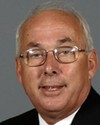Mr. Speaker, the answer is as follows: a) and b) No charges were laid as a result of the Canadian Forces National Investigation Service, CFNIS, investigation into the coffee-tampering allegation. Charges under most of the provisions of the National Defence Act, including section 129, Act to the Prejudice of Good Order and Discipline of the Canadian Forces), were barred by a three-year statutory limitation period. It was determined that there was an insufficient evidentiary basis to lay charges under the Criminal Code or other provisions of the National Defence Act that were not covered by the three-year limitation period.
On June 20, 2000, the Chief of the Defence Staff directed that a special career review board be convened to look at the members identified in the first CFNIS investigation report as well as personnel in the in-theatre unit chain of command for 11 Platoon, D Company, 2 Princess Patricia’s Canadian Light Infantry, PPCLI. It looked at approximately 70 members in total. At the conclusion of the review, the Director General Military Careers placed one member on counseling and probation and issued a recorded warning to seven others. These eight members are still serving in the Canadian Forces.
c) The Department of National Defence learned of the allegation through a confidential informant on August 2, 1999. The information was relayed to the CFNIS on August 3 and a decision to inform Mr. Stopford was made the same day. Mr. Stopford was informed of the allegation for the first time on August 4. The delay reflects the time it took the CFNIS officer to travel to Mr. Stopford's home.
d) The Crown has made two offers to settle to Mr. Stopford, one in June 2004 and one in October 2004. These offers take into account the fact that Mr. Stopford is in receipt of a wide range of benefits from the Government of Canada. In addition, the Department of National Defence worked with Mr. Stopford, notably in facilitating his trip to the Mayo Clinic to ensure he would receive adequate treatment.











